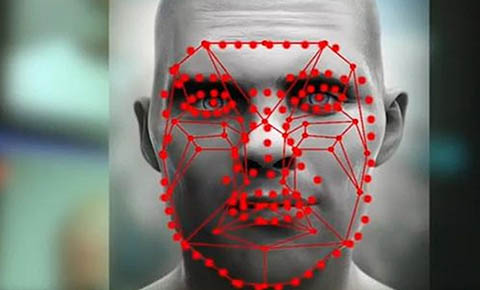Student Films Explore Race, Power, and Technology
 Three timely documentary films examining the impact of new policing and surveillance technologies on communities in Chicago and Evanston will premiere online in a special event organized by Northwestern University’s School of Education and Social Policy (SESP) and the Block Museum of Art.
Three timely documentary films examining the impact of new policing and surveillance technologies on communities in Chicago and Evanston will premiere online in a special event organized by Northwestern University’s School of Education and Social Policy (SESP) and the Block Museum of Art.
The virtual screening at 7 p.m. Wednesday, June 17 will be followed by a live panel with the high-school aged filmmakers, a new generation of voices who are part of the Young People’s Race, Power, and Technology (YPRPT) project. To view the live screening and panel, register online.
The Young People’s Race, Power, and Technology project is an afterschool program directed and co-designed by Sepehr Vakil, assistant professor of learning sciences at SESP. Vakil’s creative vision and efforts to expand STEAM learning opportunities in the community were supported by a prestigious Faculty Early Career Development (CAREER) Award from the National Science Foundation.
The program – developed with community partners Evanston Township High School, Family Matters, Endangered Peace, and the Lucy Parsons Lab – included Northwestern undergraduate students, high schoolers and community members. Together, this diverse group investigated the ethical and social effects of specific law enforcement technologies, such as facial recognition and gang databases.
Moving the Program Online
The Young People’s Race, Power, and Technology project began as a three-week summer project in 2019. During the school year, students met weekly at the Rogers Park Family Matters Community Center until COVID-19 related school closures moved everything online.
Vakil initially worried about creating an online space for both high school student and undergraduates, but their weekly meetings continued online and documentary filmmaker and lead instructor Raphael Nash kept working with the students on their films.
The disruption turned out to be minimal, Vakil said, in part thanks to a new tool – a weekly task organizer – Zoom breakout rooms, and ‘opening circles’ led by doctoral student Jessica Marshall. “It almost breathed some good energy into the group,” he said.
The students could still access equipment, because just before Illinois’ stay-in-place order was issued, Vakil drove around Evanston and Rogers Park, dropping off computers, hard drives, and other equipment purchased with NSF funding.
“There’s been this necessary extension of trust,” Vakil said. “Before we had them put the equipment they used back in the cart. Now they have the freedom to check out whatever equipment they need. I think it grew and deepened the relationship.”
Showcasing their work
The student films examine three different technologies: facial recognition technology; social media use by Immigration and Customs Enforcement (ICE), and gang databases in Chicago and Evanston.
In STEM education, the focus is often on gender, cultural or racial identity. Vakil’s work suggests that young people also have strong political identities, or “the part of themselves that deals with issues of right and wrong and equality and social justice.”
The screening will be introduced by Vakil, and Raphael Nash, an independent film and television producer, and director, and adjunct faculty member at DePaul University’s College of Computing and Digital Media. Marshall, a learning sciences doctoral student, will then moderate a live panel discussion between the YPRPT student filmmakers.
The three documentaries include:
- “Targeted” (filmmakers: David Lewis, Jessica Rodriguez,Izadorius Tortuga)
- “Racial Recognition” (filmmakers: Yuzuka Komiyama-Kasai, Gregory Voelkel)
- “Melting Ice”(filmmakers: Eliana Chandra and Jazminé Morrow)
Jazminé Morrow’s team worked on Melting Ice, which looks at how social media can be a tool used by Immigration, Customs and Enforcement (ICE) to separate families and facilitate deportation. The film also explores how communities can use the same technology to protect themselves from ICE.
A self-proclaimed “organizer” who wasn’t necessarily sure she wanted to learn video editing, Morrow found she enjoyed learning the new skills. “I’m actually pretty proud of myself,” said Morrow, who graduated from ETHS and plans to major in fashion design at Drexel University in Philadelphia.
“It takes time, putting everything together and reworking the interviews, but it’s really rewarding at the end. I also really enjoyed making connections with people at Northwestern and other adults.”
Vakil summarized the new possibilities for learning that emerge in hybridized learning environments like YPRPT in the paper “That’s Bogus as Hell!”: Getting under the hood of surveillance technologies in an out of school STEM Learning Environment,” to be published in the proceedings of the upcoming International Conference of the Learning Sciences.
He hopes his research findings will “broaden how we understand identity processes in STEM contexts” and spark efforts to “rethink the ethical, moral, and political dimensions of technology education.”